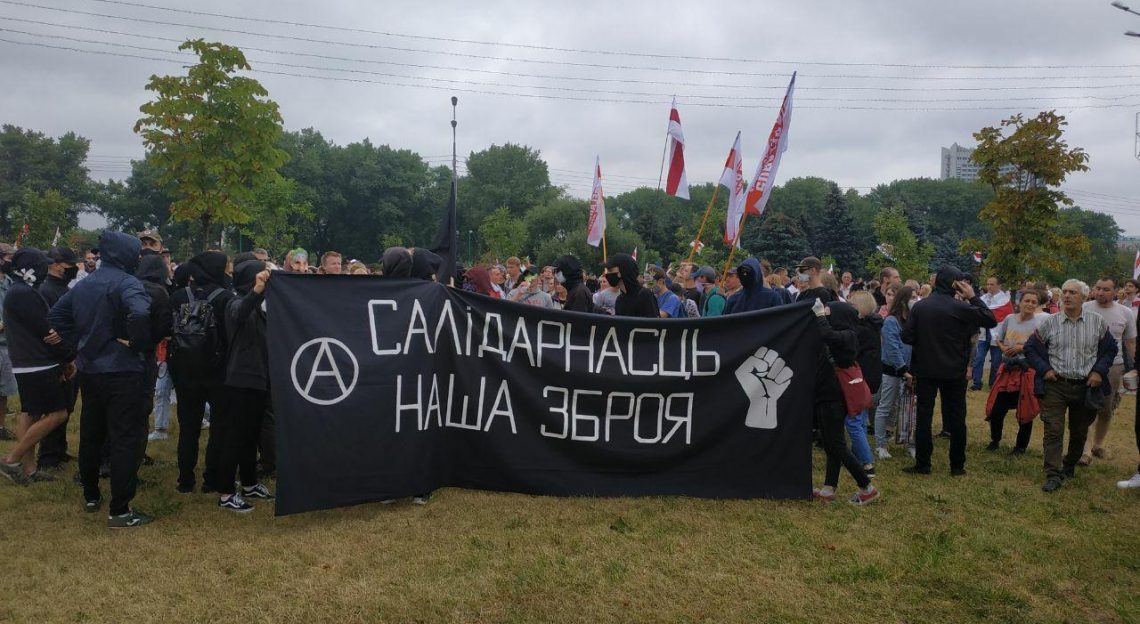Anti-authoritarian Voices in Uprising against the Dictatorship

by Bill Weinberg, Fifth Estate
The former Soviet republic of Belarus exploded into angry protests last August in the wake of contested presidential elections that resulted in a totally implausible landslide victory for long-ruling strongman Alexander Lukashenko. Police, riot squads and army troops unleashed harsh repression, using rubber bullets, flash-bang grenades and water-hoses against demonstrators in the capital Minsk and other cities.
Lukashenko, in power since 1994, was challenged in the Aug. 9 election by opposition candidate Svetlana Tikhanovskaya—a surprise replacement for her husband Sergei, a popular blogger who was arrested after he attempted to launch a presidential campaign. She held large rallies in Minsk and other cities, riding a groundswell of popular discontent with Lukashenko. After the vote, Tikhanovskaya was expelled by the Belarusian KGB to Lithuania, as spontaneous protests broke out. From exile, Tikhanovskaya issued a call for continued protests to force Lukashenko from power.
Recent Updates
22 hours 12 min ago
22 hours 42 min ago
23 hours 2 min ago
23 hours 8 min ago
23 hours 29 min ago
1 day 33 sec ago
1 day 20 min ago
1 day 27 min ago
1 day 57 min ago
1 day 2 hours ago